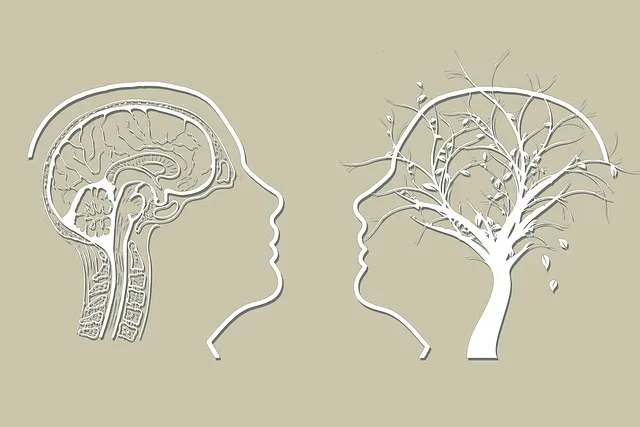Broomfield Kaiser Permanente's mental health number prioritizes culturally sensitive care by offering personalized strategies, training for professionals, patient involvement, and risk management tailored to diverse cultural needs. They adapt therapeutic methods, use interpreters, and incorporate cultural contexts into treatments to bridge gaps, build trust, improve communication, reduce stigma, and enhance recovery among all patients.
In today’s diverse society, cultural sensitivity is paramount in mental healthcare. Understanding and navigating cultural differences can significantly enhance patient outcomes. This article explores the importance of cultural diversity in mental healthcare, highlighting innovative practices like those at Broomfield Kaiser Permanente. We delve into strategies for culturally competent practice and how enhanced cultural awareness fosters better patient care, drawing from Broomfield Kaiser Permanente’s leading approach in this field, which serves as a model for the industry with its proven track record in improving access to quality mental health services for all.
- Understanding Cultural Diversity in Mental Healthcare
- Broomfield Kaiser Permanente's Approach to Cultural Sensitivity
- Strategies for Culturally Competent Practice
- Enhancing Patient Care Through Cultural Awareness
Understanding Cultural Diversity in Mental Healthcare

In today’s diverse society, mental healthcare practices must embrace cultural sensitivity to provide effective and equitable treatment. Understanding cultural diversity involves recognizing and appreciating the unique beliefs, values, and traditions that shape individuals’ lives and experiences. At Broomfield Kaiser Permanente, for instance, the mental health number is a resource that facilitates access to culturally competent care, ensuring that patients from various backgrounds receive personalized support. This sensitivity is crucial in bridging the gap between healthcare providers and diverse patient populations, fostering trust, and promoting open communication.
Cultural differences can significantly impact how individuals express emotions, seek help, and perceive mental health issues. For example, some cultures may emphasize collective well-being over individual symptoms, while others might have specific rituals or practices for healing. By integrating conflict resolution techniques and incorporating activities like self-esteem improvement exercises or mental wellness journaling, healthcare providers can create an inclusive environment that respects these differences. Such approaches not only enhance patient engagement but also contribute to improved outcomes and overall mental wellness.
Broomfield Kaiser Permanente's Approach to Cultural Sensitivity

Broomfield Kaiser Permanente has taken a significant step towards providing culturally sensitive mental healthcare services. They recognize that understanding and respecting diverse cultural backgrounds is essential to effective treatment. Therefore, they have implemented comprehensive training programs for their mental health professionals focusing on anxiety relief strategies tailored to various cultural contexts. This approach ensures that patients from different ethnic, racial, and socioeconomic groups receive care that aligns with their unique needs and beliefs.
The organization’s commitment extends beyond training. They actively involve patient families in the treatment process, encouraging open communication and collaborative decision-making. By integrating empathy building strategies, Broomfield Kaiser Permanente aims to create a safe and supportive environment, fostering trust and promoting positive outcomes for all patients. Moreover, they emphasize risk management planning as a vital aspect of their cultural sensitivity approach, ensuring that mental health professionals are equipped to handle diverse patient populations effectively while minimizing potential risks.
Strategies for Culturally Competent Practice

Cultural sensitivity is a cornerstone of effective mental healthcare practice, ensuring that services are accessible and beneficial to all individuals, regardless of their background. At Broomfield Kaiser Permanente’s mental health number, they prioritize culturally competent care, recognizing the impact of cultural factors on mental well-being. This involves a deep understanding of diverse communities, their beliefs, and practices.
To achieve this, mental health professionals employ various strategies. These include adapting therapeutic approaches to align with clients’ cultural values, using interpreters or culturally sensitive literature for those who speak different languages, and incorporating Mind Over Matter Principles to address unique challenges. Additionally, providing Crisis Intervention Guidance tailored to cultural contexts ensures that individuals receive timely support. Furthermore, focusing on Coping Skills Development specific to various backgrounds empowers clients with effective tools to navigate mental health issues within their cultural framework.
Enhancing Patient Care Through Cultural Awareness

Cultural awareness is a cornerstone in enhancing patient care within mental healthcare practices, particularly at institutions like Broomfield Kaiser Permanente. By integrating cultural sensitivity into treatment approaches, mental health professionals can create safer and more inclusive environments for patients from diverse backgrounds. This involves understanding and appreciating different cultural beliefs, values, and traditions related to mental illness, which often shape individuals’ experiences and expressions of distress.
A key aspect of this process is the implementation of tailored Mental Health Education Programs Design that address specific cultural nuances. These programs can help reduce the stigma associated with mental illnesses across various communities, fostering open conversations and encouraging patients to seek support earlier. Moreover, incorporating Social Skills Training in treatment plans has proven effective in improving communication and interpersonal relationships, benefiting patients’ overall well-being and recovery journeys.
Cultural sensitivity is not just a best practice in mental healthcare—it’s an imperative. As recognized by organizations like Broomfield Kaiser Permanente, where cultural competency is woven into their approach, understanding and respecting diverse cultural backgrounds significantly enhances patient care. By employing strategies such as language accessibility, community engagement, and tailored therapeutic approaches, mental health professionals can create inclusive environments that foster healing. This not only improves patient outcomes but also strengthens the bond between healthcare providers and those they serve. In a world where cultural diversity is ever-present, embracing these principles ensures that quality mental healthcare is accessible and effective for all.






